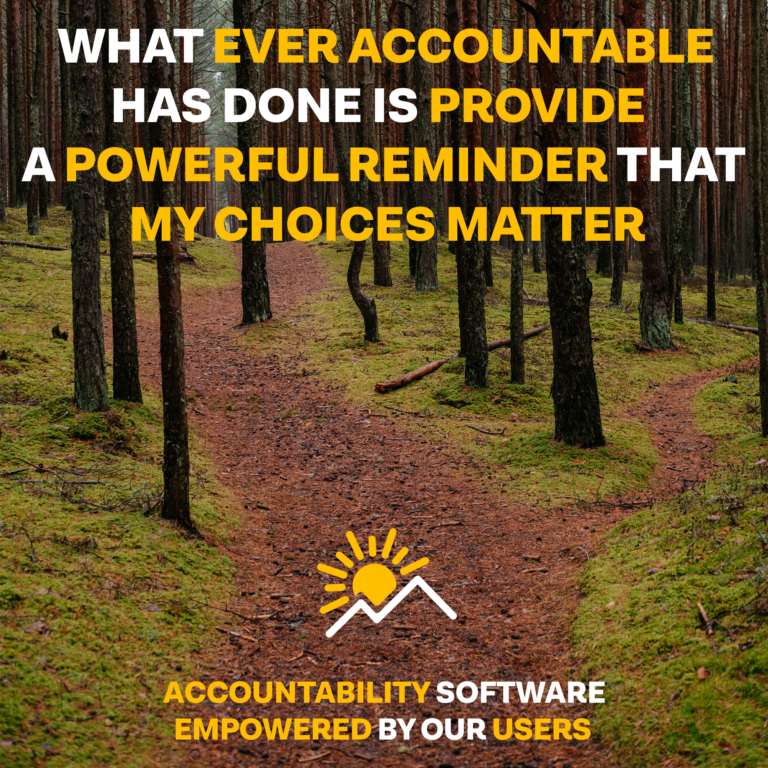Wondering how to talk to your partner about porn? If having a conversation about porn with your spouse or potential partner feels awkward and difficult, you’re not alone.
If you’re a millennial or younger, your chances of being partnered with a porn user are extremely high.
Whether you’re upset, struggling with feelings of betrayal and self-doubt, or just concerned, you need to talk! Opening a conversation about your partner’s secret porn consumption is important.
But why does this feel so hard?
In a hypersexualized society, many of us still avoid meaningful conversations about sex, notes Angela Skurtu, couples and sex therapist.
“Another reason Americans struggle to talk about sex is that their primary educators tend to be friends or porn.
While some people did have parents who tried to educate them about sex, the vast majority of my clients had to learn by picking up pieces here and there.
So friends and porn helped them learn how to have sex, but it still didn’t teach them how to have a healthy conversation.”
How to Talk To Your Partner About Watching Porn
Prepare for the Conversation
Again, feeling blindsided and feeling angry, hurt, and betrayed after discovering your spouse’s secret porn use is normal. But finding and using logical talking points will help your cause.
Educating yourself on how porn hooks people is a key first step.
Today porn is literally available everywhere thanks to the revolutionary 2007 smartphone that allowed easy internet access. Prior to this, many still accidentally found porn online by age 10-12.
Porn use releases chemical pleasure messengers in the brain. As a porn habit becomes more frequent, “neurons that fire together, wire together”. The longer someone has watched porn, often the harder this habit is to break.
Like any unwanted habit, quitting porn includes an often difficult, long-term process of rewiring the brain to new, healthy pleasurable habits.
Understanding this, expect uncomfortable emotions while talking to your husband about quitting porn.
That’s why planning a safe time and space ahead of time is another key to success. Here are a few sample scripts to set up this conversation:
- Honestly say, “I need to have an important conversation with you.
- Kindly state, “The sooner we can plan this, the better, but we need a time where we can talk freely without being interrupted, because you are important to me.”
Having a crucial conversation when it’s rushed or interrupted sets you up for failure.
Next, write down key things that you wish to say during this conversation.
Writing it out will help you process your emotions and think more clearly.
Here’s guided conversation points for you to consider.
- Let them know you discovered their porn use and ask for full disclosure about the extent of their porn habit.
- Ask, Do we share common values around porn use and our relationship? Does it bother you and are you willing to quit for yourself, not just me?
- Ask, Do you understand how addictive porn use can be, rewiring your brain, your habits, and influencing your expectations in intimacy?
- Be very specific about why their porn use bothers you. Some of your reasons may include:
- Looking at porn is cheating.
- Your spouse has lied about and hidden porn use from you, breaking your trust in their integrity. It makes you wonder if anything in your relationship is honest.
- You feel sad and betrayed, because your spouse is getting sexual fulfillment from other sources besides you.
- You know the porn industry harms and exploits people, and that bothers you, too.
- What are your personal goals and desires for the future of your relationship? Clearly write these down.
- Ask your partner, Are you willing to do whatever it takes to remove pornography from your life and rebuild trust in our relationship?
- If so, what kind of support would you like from me?
- Describe your personal boundaries and what those look like.
Finally, as you prepare, remind yourself to lean in and listen deeply.
You will be looking for clues and signs of hope for your relationship.

How To Start the Conversation
All the preparation in the world can’t resolve the big feelings and valid emotions of talking to your spouse about secret porn use.
But are taking a huge step forward for your own healing by bravely accepting this challenge.
Here’s a sample script that might help you get started and keep focused on the main reason for your conversation.
“Our relationship is important to me. So is honesty and trust. To be truthful, I discovered your porn use. I need to talk to you about exactly how I feel about this. Also, I need complete honesty and full disclosure from you. That’s the reason for this conversation. I have listed out some specific questions to ask to help me understand you better and to see if our relationship has a future.”
At this point, you can expect some strong emotions. Give your spouse a few minutes to process this, and then calmly repeat, “I have some important questions for you, and I’m willing to listen to your answers.”
If they are willing to talk further, it’s a good sign. Recovery from any addiction is uncomfortable, and it’s not your job to remove the guilt or discomfort.
How To Have A Conversation About Porn With Your Partner
Having a good conversation with your partner about porn requires being willing to listen well. Fight The New Drug highlights the importance of this:
“Porn is so toxic because it plays on a natural human desire for sex. It’s difficult for people to protect themselves from the lure of porn, so hear them out, and be respectful of what they have to say. Actually listen. Keep your mind open to listening to their experiences or perspective before jumping to conclusions.”
Here are 10 questions you can use to open this hard conversation.
These will help both of you understand where to start — hopefully on a journey to wholeness in your relationship and recovery from porn addiction.
- When did you first see porn? I’d like to understand how porn hooked you.
- Did you ever talk to anyone or ask for help?
- How many years have you been watching porn?
- How often do you watch porn currently?
- Do you understand how addictive porn use can be, rewiring your brain, your habits, and influencing your expectations in intimacy?
- Are you aware of how discovering your porn use has made me feel? (Now it’s your spouse’s turn to really listen even though it’s painful to hear your pain.)
- What steps are you willing to take to radically remove pornography from your life?
- Are you willing to install accountability software on all of your online devices?
- Are you willing to attend a sex addiction recovery group regularly?
- Are you willing to be open and accountable about this to another person besides me?
Above all, remember that both of you deserve kindness and compassion. Porn is the real enemy!
Personal tips from other wives
Savvy Esposito, after struggling and recovering from anorexia, then discovered her husband’s porn addiction. She accurately sums up betrayal trauma in a nutshell:
“Betrayal Trauma occurs when you are betrayed by someone you know intimately. Betrayal trauma has a lot of the symptoms of PTSD. In betrayal trauma, the trauma comes from being in the dark about someone close to you hiding a big secret/betrayal from you. Discovery of your partner’s addiction shatters your world. Most partners I’ve talked with and worked with were in the dark anywhere from 5-25 years! That is 25 years of lies, of deceit, of cheating.”
Savvy also offers these tips:
- Encourage your spouse to take a team approach to porn recovery: professional therapy, accountability partners, and sexual addiction group attendance.
- Focus on your own healing from betrayal trauma.
- Remember his addiction is never your fault.
- It’s valid to consider porn use cheating.
Another wife and licensed counselor Cat Etherington of The Naked Truth Project wants spouses to know that healing from betrayal takes time! Here are a few pitfalls to avoid:
- Not allowing yourself to grieve your losses and feel your feelings- a second stage of healing that some skip
- Feeling pressured to rush to forgiveness before that second stage of healing
Finding support in a safe group setting and professional therapy for betrayal trauma are both key tools to healing yourself.
Cat notes that online accountability software can help you focus on your own recovery, because it relieves you of feeling like you need to “police” the addict.
How To Tell Your Partner That You Are Struggling With Porn
If you’ve come to the conclusion that you need to tell your spouse that you’re struggling with porn, you have our highest respect.
Being vulnerable requires bravery!
However, healing cannot happen without a hard conversation in this case.
Here are a few tips to help you prepare:
Do your own research about the process of quitting porn ahead of time.
If you can say, I realize that I have a problem, and I’ve started looking for answers, your spouse will realize you are serious about change.
Be prepared to share your research, and what to expect on the journey of quitting porn when you do have this conversation.

Allow your spouse to feel all their emotions without shame.
Realistically, your fear of how your spouse may react is the initial hurdle to overcome. So mentally preparing for their honest anger and hurt is helpful for you.
If your spouse isn’t upset at all, that may be a bad sign, right? Hurt and betrayal are visible signs of love. Acknowledge your problem honestly and validate their honest feelings in return.
Remember, they need time and space to grieve and work through their own recovery process.
Include all of the necessary details of your porn habit.
Don’t minimize the extent of your habit, either. If you’ve been watching lots of porn and you’ve run up a credit card bill due to spending on porn, full disclosure is vital to rebuild and repair trust.
Let your partner know your weak spots. Here are a few more examples.
- Tell your spouse your history with porn consumption honestly.
- How, where, and when did you encounter porn? Your phone? Social media?
- How often do you currently struggle with porn?
- What are your known triggers?
Tell your spouse you have set new goals for yourself.
Make your goals clear to your spouse. Talk together about quitting porn in a positive way — as a goal to be achieved. Setting goals fuels hope for change. What’s even more powerful? Teaming up to reach an important goal!
Ask your partner to help you quit using porn.
If you’ve done step one — researching the process of quitting porn — you’ll be able to break down your goals more clearly
Then you can ask your spouse to help you in very specific ways. Asking for help is a sign of strength, not weakness.
Be willing to be consistently accountable.
Accountability to another person is a time-tested, proven way to meet goals. Being accountable for all your internet activity through an accountability app works!
Here’s the basics of how this works. First, you download an accountability app on all of your devices, so porn has nowhere to hide.
When you choose an accountability partner, they get weekly reports of your internet use. To be successful, you need at least one trusted person to help you not look at porn.
You may choose as many accountability partners as you wish, including your spouse.
When you know someone who cares about will see your internet activity, you’re highly motivated not to view porn, even in a weak moment.
In fact, our internal survey data backs this up! In our Ever Accountable community, 95% of people report an immediate and significant reduction in porn use as soon as they set up the app on all of their devices.
14-Day Free Trial
Protection From Pornography
Change your habits, change your life: Start our 14-day free trial to help get rid of pornography for good.
“Ever Accountable has been a total game-changer for me. The hardest part about it is asking someone to be your accountability partner, but don’t let that deter you!
Freedom is just on the other side of that one uncomfortable conversation and it is well worth it. This app makes it so much easier to quit and the emails are very encouraging.” — Clayton E., one of our happy customers
Talking To Your Partner About Porn Now Will Help Free You From A Life Of Regrets.
Living fully means facing our challenges and choosing to live free of regrets. Bronnie Ware, a former palliative care nurse who sat with many dying patients says this:
“Every single decision you can make and every single snippet of courage you can find, to ensure you are living true to your own heart, takes you further away from the anguish and heartbreak of regret. And the more courageous you are, the more the world also benefits. After all, we are all in this together.”
Are you ready to step forward courageously today? Go ahead and start that important conversation about porn!
*Ever Accountable’s blog is not intended to be a substitute for professional advice, diagnosis, or therapy, though we often link to medically reviewed studies.
14-Day Free Trial
Protection From Pornography
Change your habits, change your life: Start our 14-day free trial to help get rid of pornography for good.




